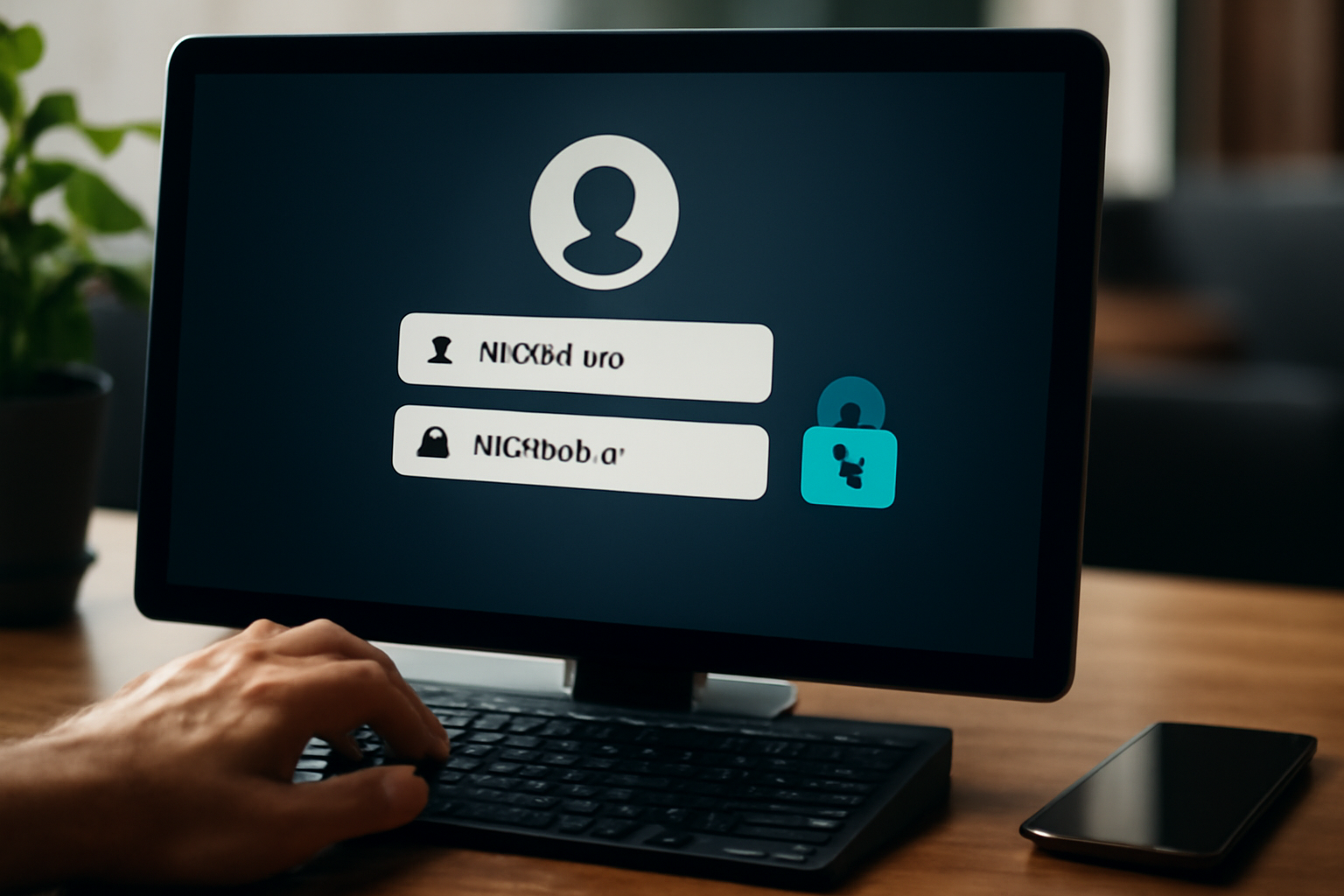In today’s rapidly evolving world, technology is no longer a luxury reserved for large corporations. It’s a vital element that fuels the success of small businesses—whether you’re just starting out or already managing a growing venture. From improving efficiency to reaching new markets, embracing the right tech tools can transform a modest operation into a competitive powerhouse.
But why exactly is technology so essential for small businesses? And how can entrepreneurs, even those without a tech background, benefit from integrating smart digital solutions into their everyday processes?
Let’s dive in.
The Competitive Landscape Has Changed
In the past, small businesses often competed only within their local communities. Today, the internet has leveled the playing field. A bakery in a small town can ship cookies nationwide. A freelance designer can find clients across the globe. But none of this is possible without digital tools.
The shift means that even a one-person operation needs to think like a modern company. This doesn’t require expensive equipment or an in-house IT department. It simply requires strategic use of accessible technology.
Digital Presence Is No Longer Optional
One of the clearest examples of technology’s role in small business success is the online presence.
If your business doesn’t show up online, it’s almost as if it doesn’t exist. Here’s why:
- Consumers search online before making purchases—even local ones.
- Reviews, maps, and social media influence buying decisions.
- A basic website adds legitimacy and trust to your brand.
Today, building a website is easier than ever. Platforms like WordPress, Wix, and Shopify allow you to create a sleek, professional site without coding skills. And once you’re online, you open the door to countless opportunities like:
- E-commerce
- Digital advertising
- Email marketing
- Online booking and customer service
A business that is invisible online is missing a massive share of potential customers.
Efficiency Through Automation
Time is money, especially for small businesses with limited staff. One of the most powerful ways technology supports entrepreneurs is through automation.
Here are a few common examples:
- Email marketing tools like Mailchimp automate customer outreach.
- Inventory management software prevents stock issues and waste.
- Customer relationship management (CRM) systems keep track of client interactions.
- Accounting software like QuickBooks helps manage finances without needing a full-time accountant.
When routine tasks are automated, entrepreneurs have more time to focus on growth strategies, product development, or client relationships—the areas that truly move the business forward.
Enhanced Communication and Collaboration
Whether your team is remote, hybrid, or on-site, clear communication is the backbone of success. Thankfully, technology makes efficient collaboration possible even across time zones.
Tools like:
- Slack or Microsoft Teams for team chats and quick updates
- Zoom or Google Meet for meetings and client calls
- Trello, Asana, or ClickUp for task and project management
These tools aren’t just for tech companies. Even small service providers, educators, consultants, and solo freelancers can streamline their operations using them.
Real example: A home-based bakery can use WhatsApp for quick communication with delivery drivers and Google Sheets for managing order schedules. It’s simple, effective, and scalable.
Access to Data and Insights
One of the most underrated advantages of modern technology is data analytics. Small businesses no longer have to rely on gut feelings to make decisions.
With tools like Google Analytics, Meta Business Suite, or POS systems, businesses can track:
- What products are selling best
- Where customers are coming from
- What times of day are busiest
- Which marketing campaigns are working
With this information, a business can make smarter choices, reduce waste, and increase profits. For example, a coffee shop might discover that their new flavored latte sells best on weekends—and then promote it accordingly.
Reaching New Customers Through Digital Marketing
Traditional advertising is expensive and hard to measure. Digital marketing, on the other hand, offers affordable and highly targeted options.
From SEO (Search Engine Optimization) to social media marketing, technology allows small businesses to:
- Target specific demographics
- Run ads on a small budget
- Track performance in real-time
- Build a loyal online community
Whether you’re running Instagram ads for a handmade candle brand or optimizing your bakery’s website to rank on Google Maps, digital marketing gives you direct access to your audience.
And the best part? You can start small and scale gradually.
Flexible Business Models
Technology opens the door to new business models. Let’s take a look at a few examples:
- A yoga instructor can offer online classes via Zoom.
- A local artist can sell prints through an e-commerce site.
- A nutritionist can run consultations via video call.
Especially since the pandemic, consumers have become comfortable with digital experiences, even for traditionally offline services. For many small businesses, embracing tech isn’t just about survival—it’s a chance to thrive in new ways.
Security and Risk Management
Cybersecurity may seem like a concern for big businesses, but small businesses are often more vulnerable. According to several studies, cyberattacks increasingly target small operations because they often lack protection.
Fortunately, technology also provides solutions:
- Two-factor authentication (2FA)
- Encrypted email services
- Cloud backups
- Antivirus and firewall protection
By using affordable security tools, small businesses can protect their data, customer trust, and reputation.
Tech Makes Scaling Possible
Small businesses that embrace technology are better positioned to grow. With the right tools in place, you can:
- Onboard new employees faster
- Handle more customers
- Expand to new markets
- Create more consistent workflows
Imagine an online store that uses Shopify, automates email responses with a chatbot, and manages shipping through an integration with a fulfillment service. That’s a scalable system that can grow without breaking under pressure.
Growth doesn’t have to be chaotic—it can be smart and strategic, thanks to technology.
Affordable Tools and Resources
A decade ago, many of these tools were expensive or limited to enterprise-level businesses. Now, most small business software is:
- Affordable (often free for small-scale use)
- Cloud-based (accessible anywhere)
- User-friendly (no tech background needed)
This democratization of technology has empowered millions of small business owners worldwide. From farmers using apps to monitor crops to writers managing clients through online portals, the tools are within reach.
And with AI-based assistants, chatbots, and no-code platforms on the rise, things are only getting easier.
Real-Life Success Stories: Small Businesses Empowered by Technology
To see the real impact of technology, we can look at businesses that have used digital tools to scale, streamline, and succeed.
1. The Local Café That Turned National
A small family-run coffee shop in Austin, Texas, faced declining foot traffic during the pandemic. Instead of closing down, they took a bold step—they launched an e-commerce store to sell their own brand of ground coffee online. Using Shopify, email marketing tools, and social media ads, they created a new revenue stream that now accounts for 60% of their monthly sales. Today, they ship across the U.S. and even offer subscription boxes.
Lesson: Even a traditional brick-and-mortar shop can find a second life online.
2. A Handmade Jewelry Brand With Global Reach
An artisan who sold handmade jewelry at weekend fairs in her town started showcasing her products on Instagram and Etsy. With a small investment in learning product photography and SEO for Etsy listings, her business now reaches customers in over 10 countries. She uses Canva to create graphics, Google Sheets to manage inventory, and PayPal for easy payments.
Lesson: Creative entrepreneurs can turn hobbies into full-time global businesses with the right tech tools.
The Psychological Edge of Embracing Technology
Using technology doesn’t just improve operations—it also boosts confidence and morale. Business owners who learn and apply new tools often report:
- Feeling more in control of their business
- Reduced stress due to automation and better organization
- Greater adaptability to change (which is vital in uncertain times)
Being tech-savvy isn’t about becoming a computer expert. It’s about problem-solving with modern tools. It makes you more resilient and positions your business to pivot quickly when needed.
Overcoming Common Tech Fears
Many small business owners hesitate to embrace technology due to fear:
- “I’m not good with computers.”
- “I don’t want to break something.”
- “I can’t afford fancy software.”
These fears are common—but outdated. Most modern tools are designed for non-technical users, with drag-and-drop interfaces, simple dashboards, and tutorials available for free.
Also, there’s a vast ecosystem of free or low-cost options. For example:
- Canva for design
- Trello or Notion for organization
- Google Workspace for documents, spreadsheets, and communication
- Wave Accounting for small business finances
- Mailchimp free tier for email marketing
In most cases, the cost of not using technology is much higher—in lost time, missed customers, and slower growth.
What Tech Trends Should Small Businesses Watch?
Staying ahead doesn’t require chasing every new buzzword, but being aware of emerging trends can help future-proof your business.
Here are a few worth paying attention to:
1. AI and Automation Tools
AI is no longer sci-fi. From smart chatbots that handle customer queries to AI writing assistants that help with content creation, artificial intelligence is saving time and increasing productivity for small teams.
2. Mobile-First Everything
More people browse and shop on their phones than on desktops. This means your website, communication, and marketing must all be optimized for mobile.
3. Voice Search Optimization
As smart speakers become more common, consumers are using voice search like “best bakery near me” or “affordable dog grooming in LA.” Structuring your site and listings to answer these questions improves discoverability.
4. Cybersecurity for Small Business
With increased digital adoption, cybersecurity is a growing concern. Using tools like password managers (e.g., LastPass), encrypted storage (e.g., Google Drive or Dropbox), and 2FA can protect your business from data loss or breach.
A Final Word of Encouragement
Small businesses are the heartbeat of the global economy. They bring innovation, community, and personalized service in a way that large corporations often can’t. But to keep thriving in this fast-moving world, they must embrace technology as a partner, not a threat.
Tech doesn’t have to be intimidating. It’s a tool—a powerful one—that, when used wisely, allows you to:
- Do more with less
- Reach more people
- Run your business with confidence
- And most importantly, focus on what you love
You don’t need to be a tech genius. You just need to be willing to take the first step.





















